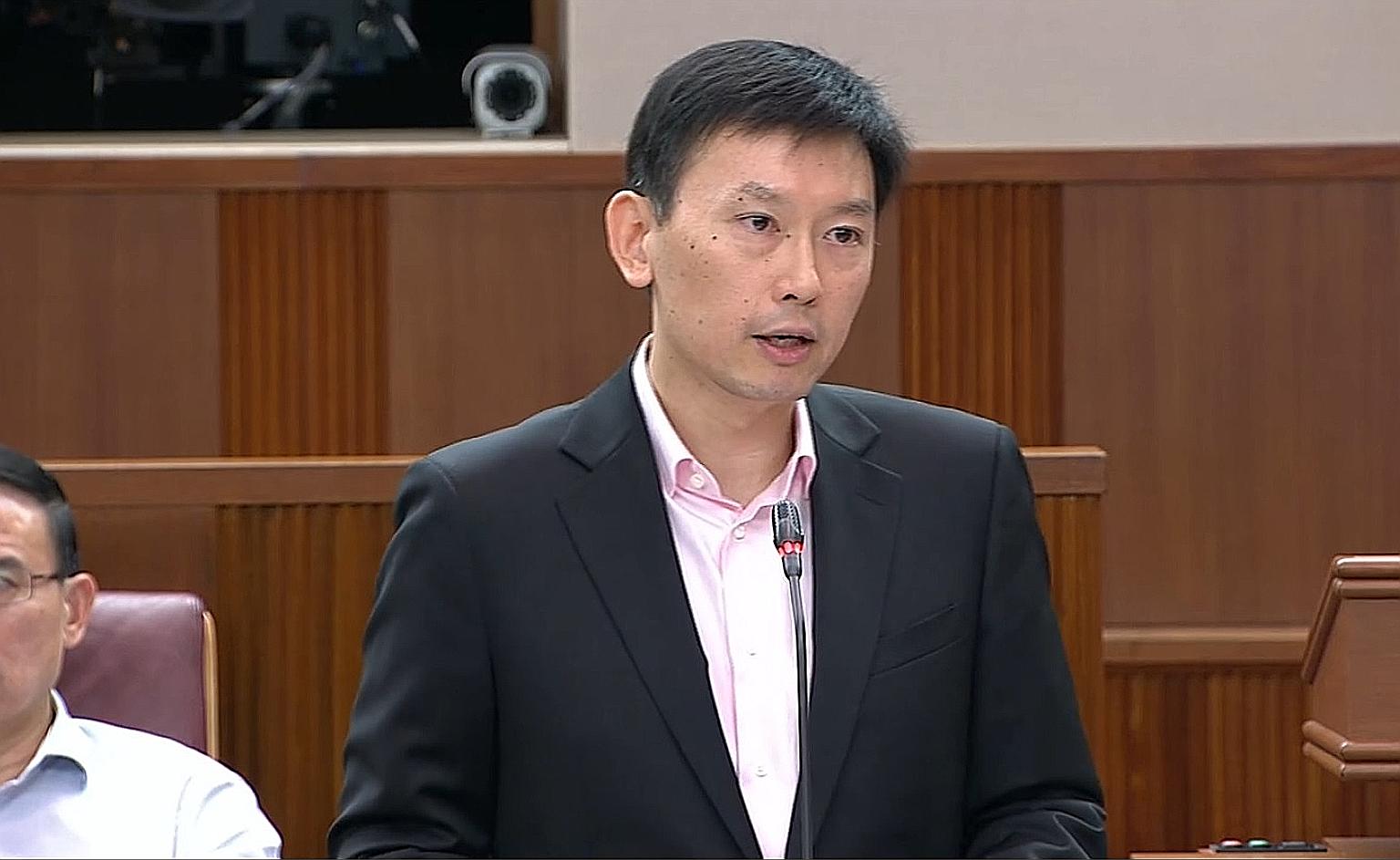Debate on ministries' budgets
Parliament: Enterprises get new grant to cover out-of-pocket training expenses
Sign up now: Get ST's newsletters delivered to your inbox

SENIOR MINISTER OF STATE FOR TRADE AND INDUSTRY AND EDUCATION CHEE HONG TAT.
Follow topic:
Enterprises will get more financial support for training employees.
Senior Minister of State for Trade and Industry and Education Chee Hong Tat told Parliament yesterday that a new Productivity Solutions Grant (SkillsFuture Training Subsidy), worth up to $10,000 for each firm, can be used to cover 70 per cent of out-of-pocket training expenses.
This means that coupled with existing SkillsFuture course fee subsidies of up to 90 per cent, the cost of sending an employee for a training course with a fee of $2,000, for instance, would come to just $60 for a firm.
Mr Chee also announced a series of measures to improve the training ecosystem, making it cheaper and easier for providers to meet standards and even export their courses overseas.
But even as he described training and skills upgrading as critical elements of transforming a business for the future, he urged employers to recognise and reward workers as they climb the skills ladder.
SkillsFuture Singapore (SSG), the agency playing a key role in skills training, has rolled out Skills Frameworks across 27 sectors which set out career pathways and the existing and emerging skills required.
-
Steps to improve skills training
• Enterprises can apply for a new grant to help them cover the costs of training their employees. The new Productivity Solutions Grant (SkillsFuture Training Subsidy), worth up to $10,000 for each firm, can be used to cover 70 per cent of out-of-pocket training expenses.
• SkillsFuture Singapore will also reduce compliance costs for private training providers and education institutions and make it more convenient for them to seek regulatory approvals.
Replying to Ms Foo Mee Har (West Coast GRC), he said companies may use the new subsidy for training that is aligned with their industry's Skills Framework.
Moves to cultivate lifelong learning, which Mr Chee said "needs to be part of our cultural DNA", are beginning to bear fruit.
For instance, about 465,000 Singaporeans have taken part in SkillsFuture programmes, he said in response to Nominated MP Lim Sun Sun, who asked about the efficacy of these programmes.
He added: "From a survey of 3,500 learners who attended work-related training in 2018, more than 80 per cent said they were able to perform better at work six months after the training."
Mr Chee said that the higher learning institutions, like polytechnics and universities, are also expanding their options for continuing education and training.
The number of work-learn programmes in the institutions, which allow students to study for a qualification and work at the same time, had increased from 15 in 2015 to 123 in 2018, benefiting over 3,500 individuals, he said.
Responding to Dr Intan Azura Mokhtar (Ang Mo Kio GRC), Mr Chee said that SSG will be making some changes to reduce compliance costs for training providers and make it more convenient for them to seek regulatory approvals.
First, the number of regulatory fees for private education institutions will be cut from nine to three, with an annual cost saving of $380 to $640 for each provider.
SSG will also simplify the licen-sing process for providers who offer both government-approved Workforce Skills Qualifications (WSQ) and private education programmes.
It will also reduce the cost incurred by WSQ training providers in issuing e-certificates.
Mr Chee said the certificate fee has gone down from $2.60 to $1.20 so far, and SSG will further reduce this fee so that savings can be passed down to training providers as well as students.
Emphasising the need for companies to prioritise worker training, Mr Chee said: "As companies restructure and transform with technology, they should also build capabilities in their workers to help them move up the value chain. Transformation must be 'technology-driven, people-led'."
He added: "Using technology alone is not adequate if the workers are not trained to optimise these tools. If we do it well, enterprise transformation should result in higher profits for the company and higher pay for our workers - a win-win outcome."
Amelia Teng
Correction note: This article has been edited for clarity.

